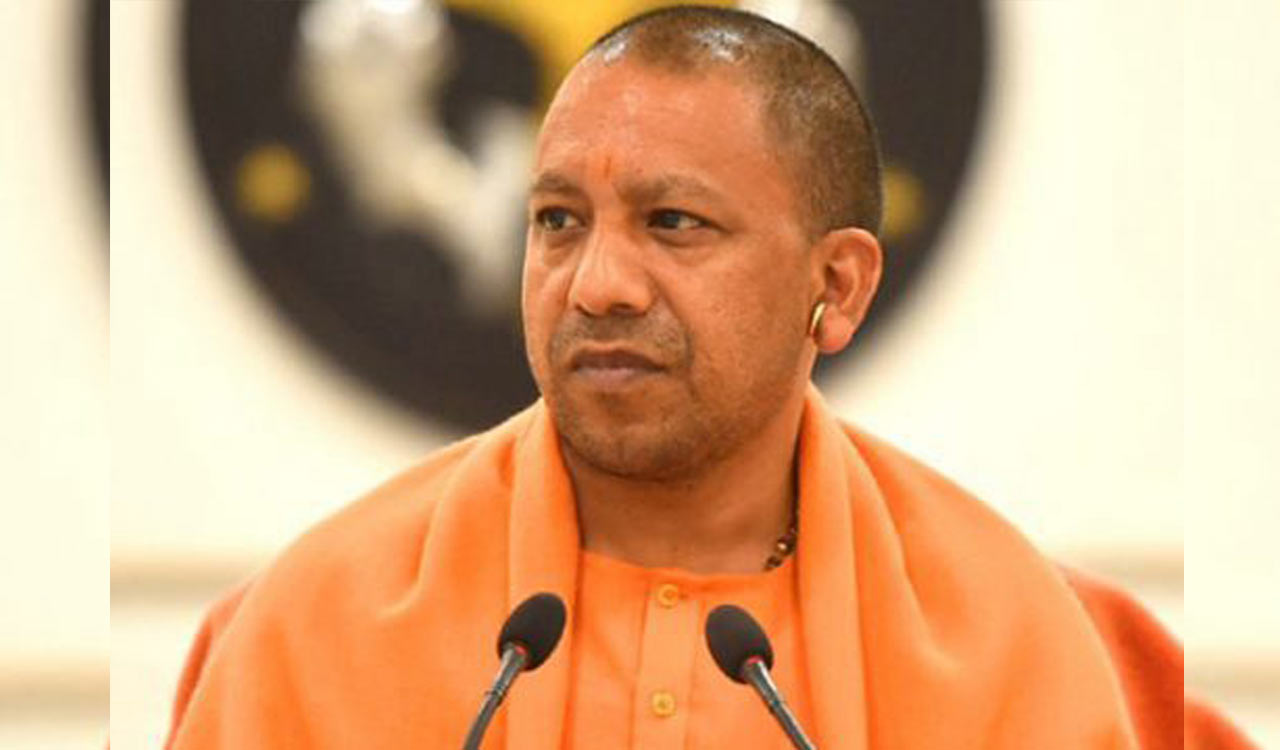Subsequently, the allocation of tokens to farmers will commence, and this allocation will be based on a first-come, first-served basis.
Published Date – 05:03 PM, Sun – 17 September 23

Lucknow: With a special focus on providing clean energy options to meet the growing energy needs of the state, the Uttar Pradesh government, in line with the intentions of Chief Minister Yogi Adityanath, has set a target to install over 30,000 solar photovoltaic irrigation pumps under PM KUSUM Yojana, said an official statement.
According to an official statement by the Chief Minister’s Office (CMO), “The Uttar Pradesh government, in line with the intentions of CM Yogi, has set a target to install over 30,000 solar photovoltaic irrigation pumps by spending Rs 434 crore under PM KUSUM Yojana in the financial year 2023-24 of which the state and central government’s shares would be Rs 217.84 crore and Rs 217.09 crore respectively.”
The responsibility of implementing this action plan in the state has been given to the Uttar Pradesh New and Renewable Energy Agency (UPNEDA), through which a clean energy-based irrigation system will be provided to the farmers of 75 districts through surface and submersible pump installation, said the statement.
The Yogi government has set the target of installing 30,000 solar photo voltaic irrigation pumps under the project.
According to the guidelines of the Ministry of New and Renewable Energy of the Government of India, 60 percent of the benchmark cost of the installation of standalone solar pumps of different capacities up to 7.5 HP will be provided as grant, 30 percent each of which will be borne by the centre and the state, it added.
Farmers who are interested in installing standalone solar pumps through the Agricultural Infrastructure Fund can deposit the necessary farmer’s share by obtaining a loan from a bank at the same time. The state and central governments will contribute 3 per cent each of the total interest rebate of 6 per cent on this, it said.
The statement further stated that the installation of these pumps will assist farmers in adopting solar-powered irrigation, offering them an affordable and eco-friendly energy source.
This move represents a substantial contribution to environmental preservation, contributing to the mitigation of climate change threat and the reduction of carbon emissions in the region.
Simultaneously, it will lead to reduced irrigation costs as farmers rely less on electricity and diesel for their operations. Selection will be based on a first-come, first-served approach, it added.
According to the recently approved revised action plan, UPNEDA will assist in the installation of various solar pumps, including 1800 W 2 HP DC and AC surface and submersible pumps, 3000 W 3 HP DC-AC submersible pumps, 4800 W 5 HP AC submersible pumps, 6750 W 7.5 HP AC submersible pumps, and 9000 W 10 HP AC submersible pumps, said the statement.
To take advantage of this scheme, interested individuals must register on the Agriculture Department’s website, www.upagriculture.com. Following registration, farmers should select the pump specifications and categories for which they wish to apply for eligibility, it added.
Subsequently, the allocation of tokens to farmers will commence, and this allocation will be based on a first-come, first-served basis.
During the application process, farmers will be required to make an online payment of Rs 5000 as a token deposit. Subsidies for the installation of solar pumps will be provided to farmers according to the allocated targets for all districts, said the statement.




